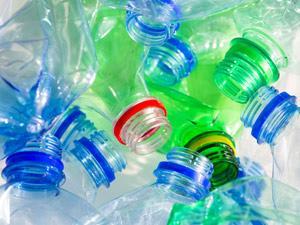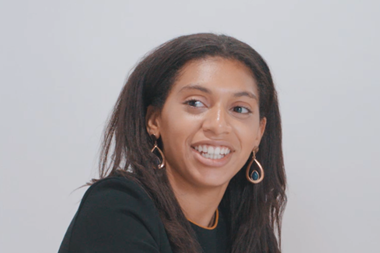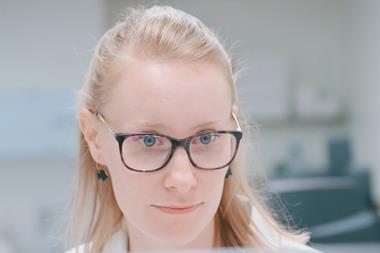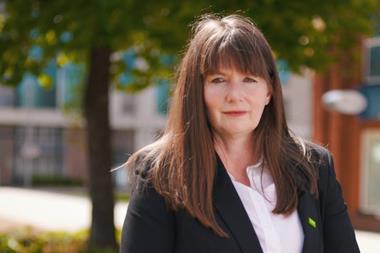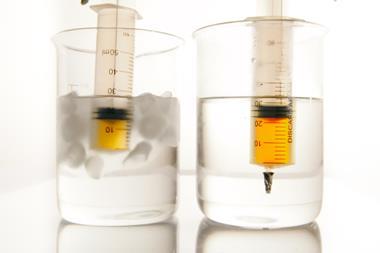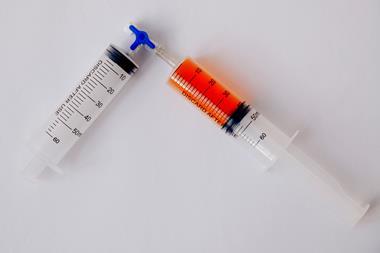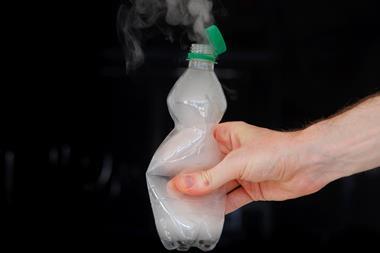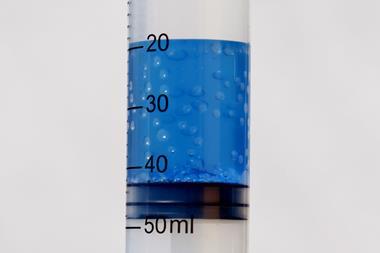Everything you need to know
-
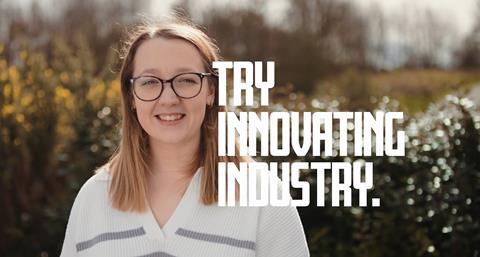
- Salary range: £25–40k
- Minimum qualifications: Degree-level qualifications (including master’s)
Undergraduate degree studied at: University of Hull - Skills required: Organisation, problem solving, interpersonal, strong communicator, scientific reporting, collaboration
- Training required: No specific training required.
- Work–life balance: Flexible working.
- Career progression: Professional registration available and applying for more senior positions/responsibility.
- Locations: Find related work experience positions using our map of employers
More profiles like Sophie's
What does a research scientist at Xeros do?
Every time you wash your clothes, they shed millions of tiny fibres that end up going into the environment. Clothes are mainly made of synthetic materials (around 70%) so many of these fibres are plastic, but even natural fibres carry chemicals and pollutants into the environment. As these fibres are so small, they can get into the food chain and, ultimately, into us – they have been found in our blood, brains and organs.
I am developing a washing machine filter called XFilter that prevents microfibres escaping into the environment when you wash your clothes. My role is to test how effective the filter is at preventing microfibres being released and to work with engineers to make it more effective. The end goal being that washing machine manufacturers will add the filter making it possibe for people at home to reduce the microfibres entering the environment when we wash our clothes.
What is your typical day like?
There really isn’t a typical day in my role. However, there are key areas that I work on most days. A major part is testing – this involves testing new prototype filters to ensure they perform as we would expect, looking at what might happen to filters in the real world, stress testing filters to ensure they can be implemented for consumers and testing competitor products.
How do you apply chemistry in your role?
My role is very hands on, using gravimetric techniques (which uses equipment to determine mass and weight) and microscopes. I analyse how different variables affect microfibre release such as temperature, detergent, softener and water volume. Reviewing up and coming research is also a key part in understanding how microfibres interact chemically and biologically once in the environment and applying that to our testing.
What do you like most about your job?
Before I joined Xeros, I wasn’t aware of what a huge issue microfibre pollution is. I love that my work helps to create a solution for such devastating environmental pollution. Because this is an upcoming field, there are always new challenges to solve and new things to learn, which makes my job very interesting. We are constantly improving and trying to find solutions to problems by collaborating with colleagues in all departments.
How is your job making the difference?
We know that there are over 171 trillion microplastics floating in our seas – this has increased ten-fold since 2005 so it’s a growing issue. When you consider that microfibres from textiles account for 35% of primary microplastics in the world’s oceans, being part of the process of researching and testing our microfibre filtration solution (XFilter) has a big impact on reducing the amount of pollution that is emitted into the environment. Without the science aspect of what I do, we wouldn’t innovate new technology – it’s the fusion of science and engineering that means we can find out how to solve issues like this.
Who or what inspired you to work in chemical science?
I can’t pinpoint exactly who or what inspired me, but I have always had an interest and love for science. After my degree, I knew I wanted to continue having a career in science.
How did you get into your current role?
After graduating from my geology degree, I got a summer job working in a seed lab which required me to analyse the quality of the annual grain harvest. This then led me to a role as a scientist in an inorganic chemistry water quality laboratory where I had the opportunity to lead a research and development project which was something that I really enjoyed, sparking my interest in becoming a research scientist at Xeros.
What barriers did you encounter on your journey into your role?
My main barrier that I have encountered is that I haven’t got a chemistry degree. However, I overcame this by getting work experience in the field.
How has chemistry opened doors for you?
Chemistry has definitely opened doors for me. It has allowed me to experience so many different types of roles and find the research and development side that I love.
What advice would you give to a young person thinking of studying chemistry or considering a career in chemical science?
Go for it! Everything around us is chemistry, which means there are so many paths and avenues that you could explore.
What do you dream about doing further down the line?
My dream is continuing to be able to make a difference to the world by helping improve the environment.
Want to know more?
- Explore your study options, talk to a career adviser and look into gaining work experience.
- Check out Xeros’ website.
- Explore more roles on Not Just Labcoats.
Sophie Levine MRSC, Research Scientist, Xeros
Published July 2024








